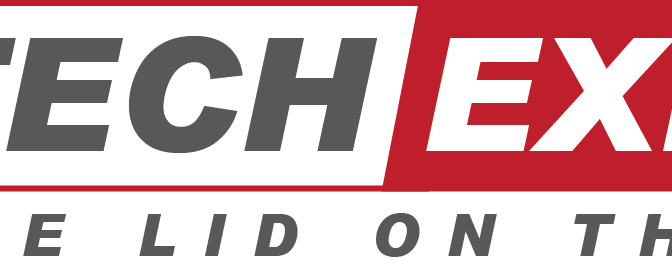We get asked time and time again whether octane boosters work. The answer is yes and no because it depends on the application and what you are trying to achieve. Let us clarify.
Firstly, we need to understand why octane boosters exist in the first place – to prevent the onset of detonation. Detonation is described as: “Excessively rapid burning of the fuel mixture, often caused by auto-ignition due to excessive temperatures in the combustion chamber, incorrect ignition timing, lean mixtures, too high a compression ratio or unsuitable fuel.” A too-low an octane rating of the given fuel. Heard as a faint, metallic rattle, detonation is accompanied by a loss of power and can cause severe damage to piston crowns. It is also known as pinking.
The significance of detonation is such that many companies produce fuel additives designed to increase the inherent octane rating of a given fuel. The proliferation of octane boosters has, in part, come about in recent times thanks to low-quality fuels, particularly with the demise of leaded fuel, which had a much higher octane rating.
This presents a problem for high-performance cars designed to run on higher octane or 100 RON Japanese fuel. Japanese import performance cars, Subaru’s STI WRX, for example, run an ECU program for 98 to 100 octane fuel and may detonate on lower octane fuels if the ECU cannot compensate for the lower octane. Some have even had ECU upgrades that require 102 RON fuel, which is readily available in Japan but not in Europe or the US, or certainly not from a conventional gas station.
Usually, octane boosters would be of little use if an engine is not detonating. However, with more sophisticated ECU/EFI programming, many engines can optimize the engine management system by advancing the ignition timing and thus benefit from higher octane fuel. This means more power. They are also advantageous as an “octane buffer” for highly tuned vehicles. For example, suppose your vehicle’s fuelling and ignition are mapped for 98 octane, and you are using 98 octane fuels. In that case, it may be beneficial to use an octane booster to increase the octane to 99 or 100 as a safety margin in the event of having “degraded” fuel, etc.
For example, Honda’s S2000 2.0-liter engine, running a high 11.0:1 compression ratio, relies on advanced engine management as much as quality fuel. But it can sustain its power on a lower octane pump fuel because the ECU compensates. However, this is achieved by reducing the ignition timing and thus results in degradation in performance. This is where a modern vehicle with advanced engine management can take advantage of a higher octane fuel or a base pump fuel plus an octane booster.
Also, any turbo owner who has experimented with boost will know if you run too much, it will detonate, so improving the octane is vital for maximum performance. However, non-performance vehicles designed and mapped to run comfortably on base pump fuel, say 95 RON, will not gain a performance advantage. Sure, many octane boosters offer other benefits, such as valve protection, but they will not gain power. Unless…..the vehicle in question has been remapped, chipped, or tuned in so that it can take advantage of a higher octane fuel.
For example: if you take a bog standard Ford Fiesta designed to run on pump fuel, there will be no performance increase from using an octane booster. But if you have the ECU (fuel and ignition) remapped for higher octane, then it will be necessary to use either a higher octane fuel or a base fuel plus an octane booster to achieve the power safely. Octane boosters are popular in the performance scene because they often regain power lost through detonation due to tuning upgrades.
Unfortunately, some popular TV car shows have been quick to rubbish the use of octane boosters. One, for example, demonstrated the use of several products on low-performance cars with basic engine management, such as a Peugeot 106, basic Clio, etc. We could have told you the results before they even started. They were all vehicles designed to run on basic low octane pump fuel, and their ECUs are not sophisticated enough to take advantage of a higher octane fuel, let alone an octane booster. Of course, it doesn’t help when many manufacturers put ridiculous claims on their labels that octane boosters will increase performance on all vehicles when they clearly won’t.
To summarise:
You can/should use an octane booster if:
1. You have a modern, high-performance vehicle and wish to make the most of the available power, and you cannot easily obtain a good quality high octane fuel in your given area.
2. Your vehicle manual specifies a particular high octane fuel (i.e., 98 RON super unleaded), but you can only find 97 RON or below. To clarify, many modern cars will adapt accordingly if using a lower octane fuel than that specified, but a reduction in performance will result.
3. You suspect that you may have a tank of old or degraded fuel where the octane value has deteriorated.
Your engine has been explicitly mapped for a higher octane fuel, and/or the engine has been mapped very closely to the edge (detonation threshold), and you require an increase in octane to provide a buffer.
4. You have modified your vehicle in other ways, such as an increase in the turbo boost pressure making detonation much more likely.
5. You are about to go on a track day where the engine will spend most of its time under considerable stress, and you wish to prevent the onset of detonation under prolonged high-stress conditions.
6. You are not looking for a performance increase but wish to lubricate and protect the valves using an octane booster in small regular dosages.
We hope this helps clarify any confusion.
The FuelTechExperts Team



 categories
categories